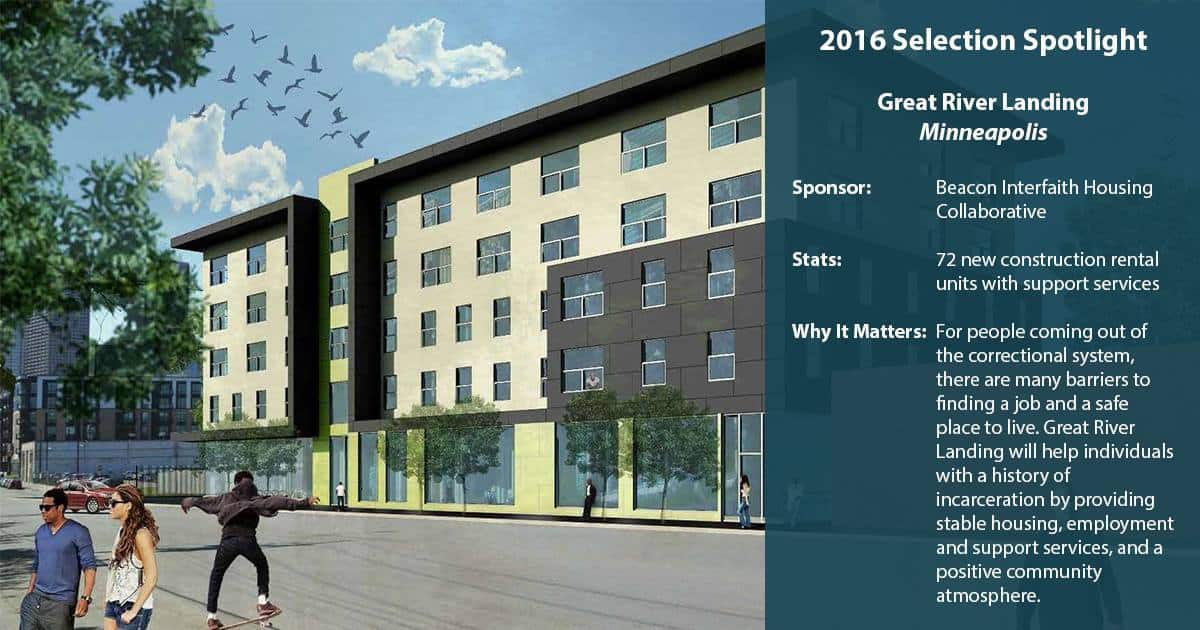
Housing Project for Felons Approved, Funded for Minneapolis’ North Loop
Beth McDonough : KSTP-TV, LLC A Hubbard Broadcasting Company : November 06, 2016
A first of its kind housing project for high-risk adults is moving forward in Minneapolis.
It’s called Great River Landing and will be located at 813 N. 5th Street in the North Loop of Minneapolis. The project is a joint venture between Beacon Interfaith Housing Collaboration, Better Futures MN along with faith leaders in Minneapolis.
Together, they secured $18 million in both public and private money.
The building will house 72 adult men, all convicted felons, like Marcus Penilton. He’s spent time in prison for violent crimes dating back to 2005.
“I didn’t care about life,” Penilton said.
Penilton is out now, working as repairman on appliances.
“It’s been hard when I fill out applications for apartments or housing period, it’s hard to find that because of my background,” Penilton said.
He landed a job at Better Futures in South Minneapolis. It’s an organization that supports felons as they hunt for limited housing and job options, attempt to reconnect with families and community.
“We embrace them, we understand they’ve done some bad things, but they’re not bad people and they’ve all made a pledge to walk a path to a better future,” said Thomas Adams of Better Futures MN.
“Right now in Minnesota we have a 70 percent recidivism rate of people returning to prison as taxpayers, that’s an expensive model and tragic for the men caught up in that,” said Lee Blons with Beacon Interfaith Housing Collaboration.
Westminster Presbyterian Church in Minneapolis helped to secure funding from the city and state.
“Affordable housing is a basic building block of a stable community, it helps the educational and economical system in the community,” Reverend Dr. Tim Hart-Andersen said.
The vacant lot on North 5th Street will eventually be constructed into an apartment complex, staffed around the clock for 72 adults.
The area was chosen because it’s close to jobs and transportation. Renters will pay 30 percent of their income for an apartment.
“Give us a chance,” said Penilton. “That’s what life is based on, it’s based on chances.”
Of the $18 million, $14 million is public money. Research from the Wilder Foundation shows for every taxpayer dollar invested, the return is almost twice that. Plans are to break ground in the fall of 2017.
None of the potential tenants asked for sympathy, but simply a chance.
You can see a list of all affordable housing projects statewide that will receive state funding.


